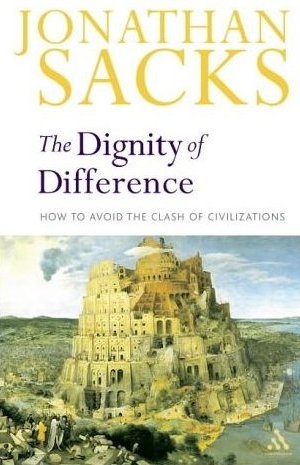- Français
- |
- Booklist
- |
- Week of Prayer
- |
- Links
- Areopagus - a forum for dialogue
- Academic journals
- Acronyms
- Bible tools
- Bibliographies
- Booksellers and publishers
- Churches
- Canadian church headquarters
- Directory of Saskatchewan churches
- Retreat centres
- Saskatchewan church and non-profit agencies
- Ecumenism.net Denominational links
- Anabaptist & Mennonite
- Anglican
- Baptist
- Evangelical
- Independent episcopal
- Lutheran
- Methodist, Wesleyan, and Holiness
- Miscellaneous
- Mormon
- Orthodox (Eastern & Oriental)
- Para-church ministries
- Pentecostal / charismatic
- Presbyterian & Reformed
- Quaker (Society of Friends)
- Roman & Eastern Catholic
- United and uniting
- Documents of Ecumenical Interest
- Ecumenical agencies
- Ecumenical Booklist
- Ecumenical Dialogues
- Glossary
- Human rights
- Inter-religious links
- Justice & peace
- Lectionaries
- Religious news services
- Resource pages
- Search Ecumenism.Net
- |
- Documents
- Ancient & Medieval texts
- Ecumenical Dialogues
- Interreligious
- Anabaptist & Mennonite
- Anglican
- Evangelical
- Lutheran
- Orthodox
- Reformed & Presbyterian
- Roman & Eastern Catholic
- United & Uniting
- Miscellaneous churches
- Canadian Council of Churches (CCC)
- Conference of European Churches (CEC)
- Interchurch Families International Network (IFIN)
- National Council of Churches in Australia (NCCA)
- Lausanne Committee for World Evangelism (LCWE)
- World Council of Churches (WCC)
- Other ecumenical documents
Church traditions
Documents from ecumenical agencies
- |
- Dialogues
- Adventist-Reformed
- African Instituted Churches-Reformed
- Anglican-Lutheran
- Anglican-Orthodox
- Anglican-Reformed
- Anglican-Roman Catholic
- Anglican-United/Uniting
- Baptist-Reformed
- Disciples of Christ-Reformed
- Disciples of Christ-Roman Catholic
- Evangelical-Roman Catholic
- Lutheran-Mennonite
- Lutheran-Mennonite-Roman Catholic
- Lutheran-Reformed
- Lutheran-Roman Catholic
- Mennonite-Reformed
- Mennonite-Roman Catholic
- Methodist-Reformed
- Methodist-Roman Catholic
- Oriental Orthodox-Reformed
- Orthodox-Reformed
- Orthodox-Roman Catholic
- Pentecostal-Reformed
- Prague Consultations
- REC-WARC Consultations
- Roman Catholic-Lutheran-Reformed
- Roman Catholic-Reformed
- Roman Catholic-United Church of Canada
- |
- Quick links
- Canadian Centre for Ecumenism
- Canadian Council of Churches
- Ecumenical Shared Ministries
- Ecumenism in Canada
- Interchurch Families International Network
- International Anglican-Roman Catholic Commission for Unity and Mission
- Kairos: Canadian Ecumenical Justice Initiatives
- North American Academy of Ecumenists
- Prairie Centre for Ecumenism
- Réseau œcuménique justice et paix
- Week of Prayer for Christian Unity
- Women's Interchurch Council of Canada
- World Council of Churches
- |
- Archives
- |
- About us

The Dignity of Difference: How to Avoid the Clash of Civilizations
Sacks, Jonathan
Continuum, 2003
ISBN: 978-0-8264-6850-5,
Subject:
The year 2001 began as the United Nations Year of Dialogue between Civilizations. By its end, the phrase that came most readily to mind was 'the clash of civilizations.' The tragedy of September 11 intensified the danger caused by religious differences around the world. As the politics of identity begin to replace the politics of ideology, can religion become a force for peace? The Dignity of Difference is Rabbi Jonathan Sacks's radical proposal for reconciling hatreds. The first major statement by a Jewish leader on the ethics of globalization, it also marks a paradigm shift in the approach to religious coexistence. Sacks argues that we must do more than search for values common to all faiths; we must also reframe the way we see our differences.
About the Author
Sir Jonathan Sacks is Chief Rabbi of the United Hebrew Congregations of Britain and the Commonwealth. He is the author of numerous books, including Celebrating Life, From Optimism to Hope, The Persistence of Faith and The Dignity of Difference, for which he won a Grawemeyer Award in Religion.
Review
The chief rabbi of Britain and the Commonwealth, Sacks is well known through his appearances on British television and through his 12 books (e.g., A Letter in the Scroll). Americans will be taken with his incisive arguments and clear writing style. What he presents here is not a treatise on Jewish faith and customs but a look at the discontents of our world and how religious values can unite rather than divide us. Sacks sees certain values (e.g., education, responsibility, charity) as imperative to any new world order, regardless of one's religious beliefs. Though these values might seem self-evident, he shows how their absence causes much that is wrong. He further exhorts us to explore more covenantal relationships, which he defines as "a bond, not of interest and advantage, but of belonging" and sees as paramount to our survival-more so than commercial relationships, however essential they are to capitalist society. Throughout, Sacks makes reference to demanding philosophical thought, but he provides some much-needed spiritual uplift in this post-9/11 world, and his work is accessible to informed lay readers. Larger libraries should consider. [Paul Kaplan, Library Journal]


